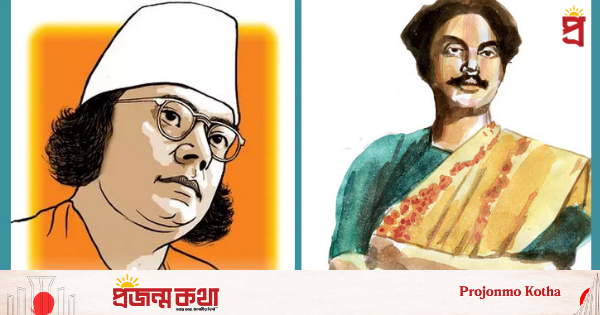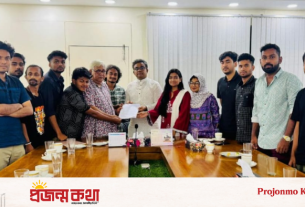Bangladesh observes the 126th birth anniversary of its national poet, Kazi Nazrul Islam—revered across the Bengali-speaking world as the “Rebel Poet.” Born on May 24, 1899, in Churulia village of Bardhaman district, West Bengal, India, Nazrul’s powerful literary voice and uncompromising stand against injustice have left a lasting legacy in Bengali literature, music, and cultural consciousness.
Early Life and Education
Nazrul was born into a humble Muslim family. After losing his father at an early age, he undertook various jobs to support his family, including working in a traveling theatrical group. He received his primary education at a local madrasa and later studied at a Bengali and Sanskrit school. Though financial hardship kept him from completing formal higher education, his self-driven pursuit of literature and knowledge never faltered.
Military Service and Rise in Literature
In 1917, Nazrul joined the British Indian Army and served in the 49th Bengal Regiment. During his military service, he continued to write poetry and fiction. After leaving the army in 1920, he dedicated himself fully to literary pursuits. His breakthrough poem Bidrohi (The Rebel), published in 1922, became a symbol of defiance against colonial oppression and established him as a revolutionary voice.
Literary and Musical Contributions
Nazrul was a multifaceted genius—poet, novelist, playwright, journalist, and composer. He composed more than 4,000 songs, now collectively known as Nazrul Geeti. His works embody themes of love, devotion, resistance, and universal humanity. His fearless stance against religious extremism and social inequality continues to inspire generations.
Titles and Honors
For his revolutionary contributions, he was honored with the title Bidrohi Kobi (Rebel Poet). In 1945, the University of Calcutta awarded him the Jagattarini Gold Medal. In 1974, he received an honorary Doctor of Literature (D.Litt.) from the University of Dhaka. Though nominated for India’s Padma Bhushan award, Nazrul graciously declined. In 1972, newly independent Bangladesh formally declared him the national poet and brought him to Dhaka with full state honors.
Final Years and Death
In 1942, Nazrul suffered from a degenerative neurological disease, eventually losing his speech and memory. He spent his later years in Bangladesh under government care. On August 29, 1976, the nation mourned his death. He was buried beside the Dhaka University central mosque—a resting place befitting the poet of the people.
Nationwide Tributes
On this solemn occasion, various governmental and cultural institutions have organized tributes to honor his life and contributions. Events across the country include seminars, recitations, musical performances, and exhibitions, celebrating the timeless spirit of Nazrul’s works.
As the nation reflects on the legacy of a poet who sang of equality, freedom, and humanity, Kazi Nazrul Islam remains an eternal voice in the heart of Bangladesh.
Reported: Md Jisan Rahman





